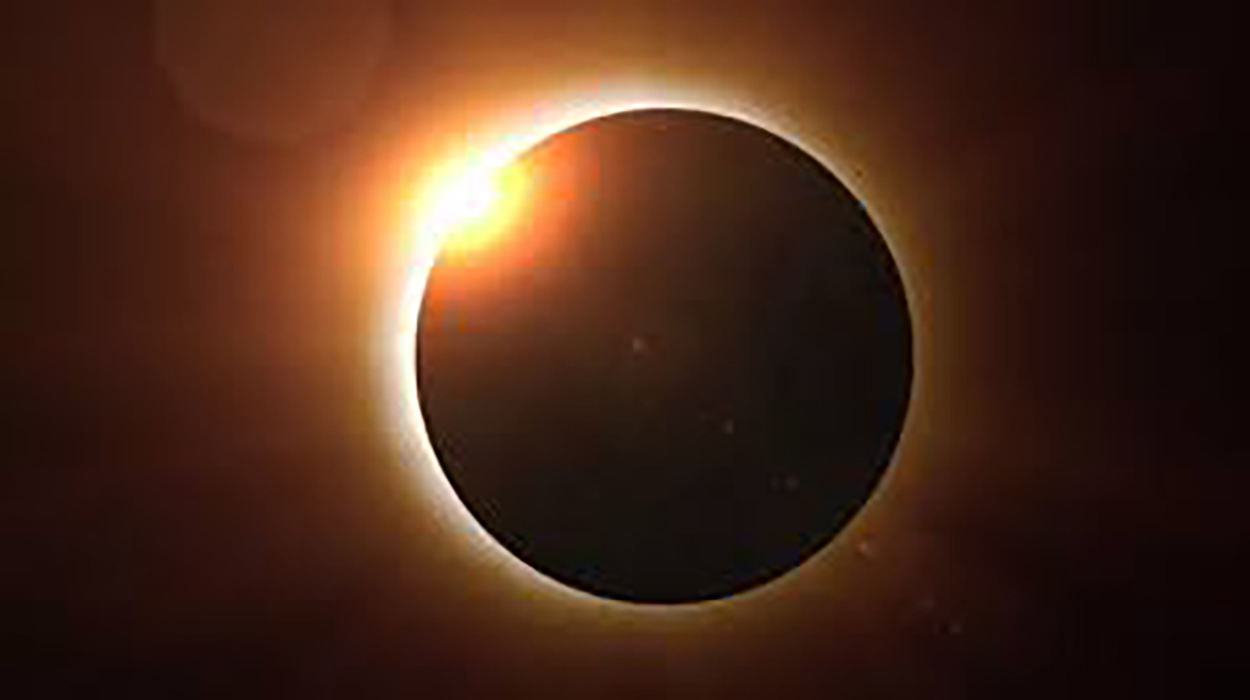
On Monday, April 8, Atlantans are in for a treat: from 1:45 until 4:21 pm the city will experience a lunar eclipse. For a good chunk of the afternoon, the orbit of the moon will partially intersect with the orbit of the sun, creating varying degrees of darkness on planet Earth as they pass by each other.
Emory Eye Center clinicians are as excited as anyone by this rare occurrence, but they are also wary of an underlying threat: even brief exposure to the intense UVB and UVA rays generated by an eclipse can disrupt or burn retinal tissue, causing temporary or permanent blurriness or blindness.
Those who view the eclipse without protection may not feel anything at the time, and vision problems may not manifest for several days. But their exposure to the damaging rays can painlessly damage the cells in the back of their eyes.
“These are the retina cells - called photoreceptors – that transmit images to the brain,” said Ghazala Datoo O’Keefe, MD, a retina specialist.
“Depending on the severity of the damage, the patient might start experiencing a loss of central vision, known as solar retinopathy. They might also notice distorted vision, or problems with color vision. Any change in vision after this type of exposure is reason enough to visit an eye care professional.”
The April 8 eclipse underscores the importance of protecting our eyes every day, says Emory Eye Center optometrist Susan Primo, OD, MPH, FAAO. Long-term, unfiltered exposure to solar rays is harmful.
“I had a patient who grew up near the equator, where no one ever told him not to stare at the sun for extended periods of time. He used to look directly at the sun, without any protection at all. He ended up damaging his retina with his eyesight was permanently impacted.”
Both O’Keefe and Primo recommend all patients address these threats with a heavy dose of prevention on April 8.
- Never look directly into a partial eclipse without protection.
A partial eclipse is any phase of an eclipse when the moon is only partially covering the sun. This is when harmful rays are released. In Atlanta, the entire 2-hour-and-36-minute duration of the April 8 event will be considered a partial eclipse (or .847 magnitude). Hence, your eye protection should be worn throughout if you plan to watch the entire spectacle. - Always wear ISO-approved eye protection.
To protect your eyes from harmful rays during an eclipse, wear glasses that have been manufactured under standards established by the International Organization for Standardization (ISO). Look specifically for the ISO 12312-2 stamp of approval on any eyewear that you plan to wear during the eclipse. - Welder’s glass and mylar filters provide ISO-grade protection.
According to the organization Prevent Blindness, #14 welder’s glass – available at any welding supply store – provides effective protection for eclipse watching. You may also use aluminized mylar plastic sheets that are fashioned into eclipse-viewing glasses. Do not use welding glass, mylar sheets, or any eye protection if it is scratched, scuffed, or otherwise damaged. - Don’t wait for a total eclipse - Georgia will not have one.
You may have heard that, in some parts of the United States, there will be a total eclipse, during which you can view the event without protective eyewear. That is true, but the devil is in the details. First, Georgia is not one of those places that will get a total eclipse, so your eye protection should remain in place throughout. Secondly, even where a total eclipse does occur, it will only last a matter of minutes, after which the two orbits will again diverge, causing sight-damaging rays to again be released. Eye protection should be worn during the partial eclipse phases that precede and follow a full eclipse. - Don’t gamble with un-approved eye protection.
The only way to protect your eyes from damaging rays is to wear ISO-approved eye protection, watch it on television, or not watch it at all. This leaves a long list of “protective” or “special” lenses that won’t work, including: your designer sunglasses, your telescope, the optical view-finder on your camera, your binoculars, and your smart-phone. - Plan ahead. Get eye protection before April 8
You can purchase eclipse eyewear at several vendors online (look for the ISO approval) or you can use this interactive map to find one of more than 13,000 libraries across the country that have a limited supply of free ISO-approved glasses. Still have questions about eye protection? Visit the American Astronomical Society website for more information.
The Emory Eye Center wishes to thank the Georgia Space Grant Consortium and the Georgia Institute of Technology's Guggenheim School of Aerospace Engineering for donating ISO-approved viewing glasses for distribution in our clinics during the week before this eclipse.
-Kathleen E. Moore


